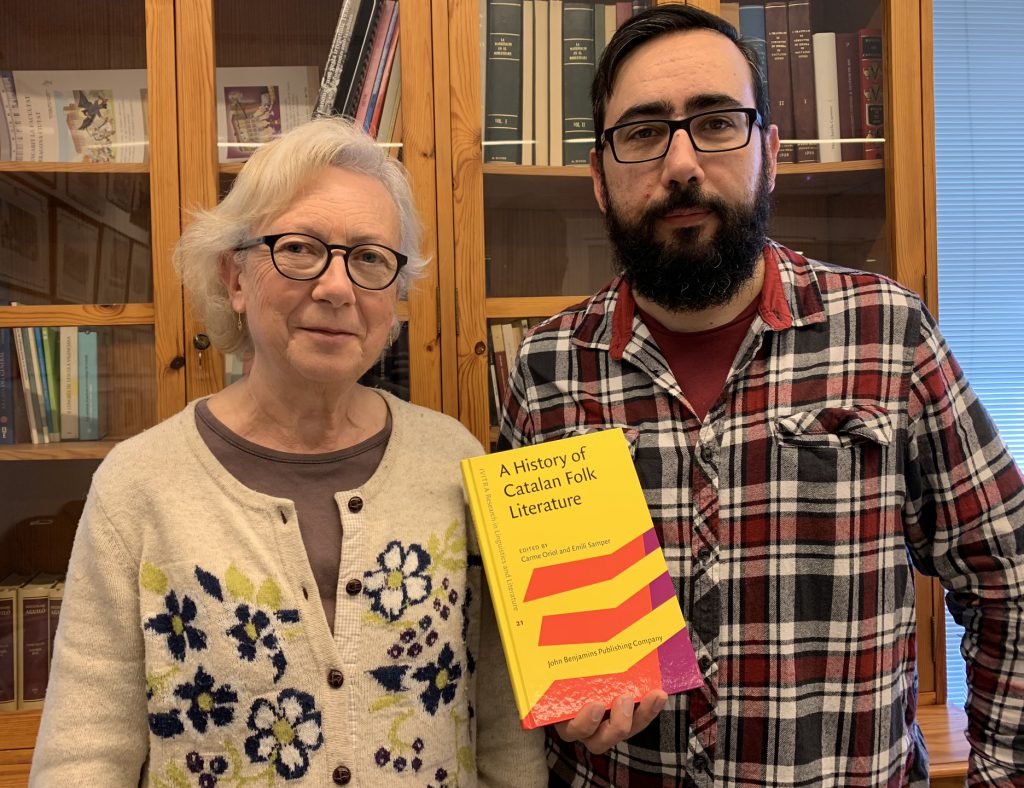06/02/2020
Catalan popular literature reaches an international audience through the book A History of Catalan Folk Literature
The book presents the evolution of Catalan folk literature studies in the Catalan linguistic and cultural territories from the 19th century

The book presents the evolution of Catalan folk literature studies in the Catalan linguistic and cultural territories from the 19th century
A History of Catalan Folk Literature is a book resulting from collaboration between fifteen researchers from various universities and research centres who have joined forces to create a wide-ranging study of the history of Catalan popular literature. Coordinated by Carme Oriol and Emili Samper, who are professors in the Department of Catalan Studies at the URV, the book undertakes a comprehensive examination of the Catalan linguistic and cultural territories with the aim of helping to disseminate Catalan folk literature to a non-Catalan speaking audience of international researchers and the general public.
A History of Catalan Folk Literature presents the evolution of Catalan folk literature studies in each of the Catalan linguistic and cultural territories, namely Catalonia, the Balearic Islands, the Valencian Country, the Western Strip, Andorra, Northern Catalonia and Alghero. The period studied extends from the mid-19th century, when academic interest in folklore began to emerge throughout Europe, to the present day.
Since the 13th century, Catalan culture has generated a rich and abundant literary heritage, and since the 19th century this has been complemented by a tradition of folklore studies that is still very much alive today. Within this relatively recent discipline, popular literature has had a particularly important role.
The book is one of the results of the interuniversity research project entitled “Estudi diacrònic de la literatura popular catalana: fons inèdits i recursos a la xarxa” (Diachronic study of Catalan popular literature: unpublished sources and online resources), which is funded by the Spanish Ministry for the Economy and Competitiveness between 2016 and 2018. It has also been supported by the Research Group on Identities in Catalan Literature (GRILC) and the URVB’s Josep Anton Baixeras Chair for Catalan Literary Heritage.
The book is volume number 21 in the IVITRA Research in Linguistics and Literature collection by John Benjamins Publishing Company and is available both in paper and electronic formats.
